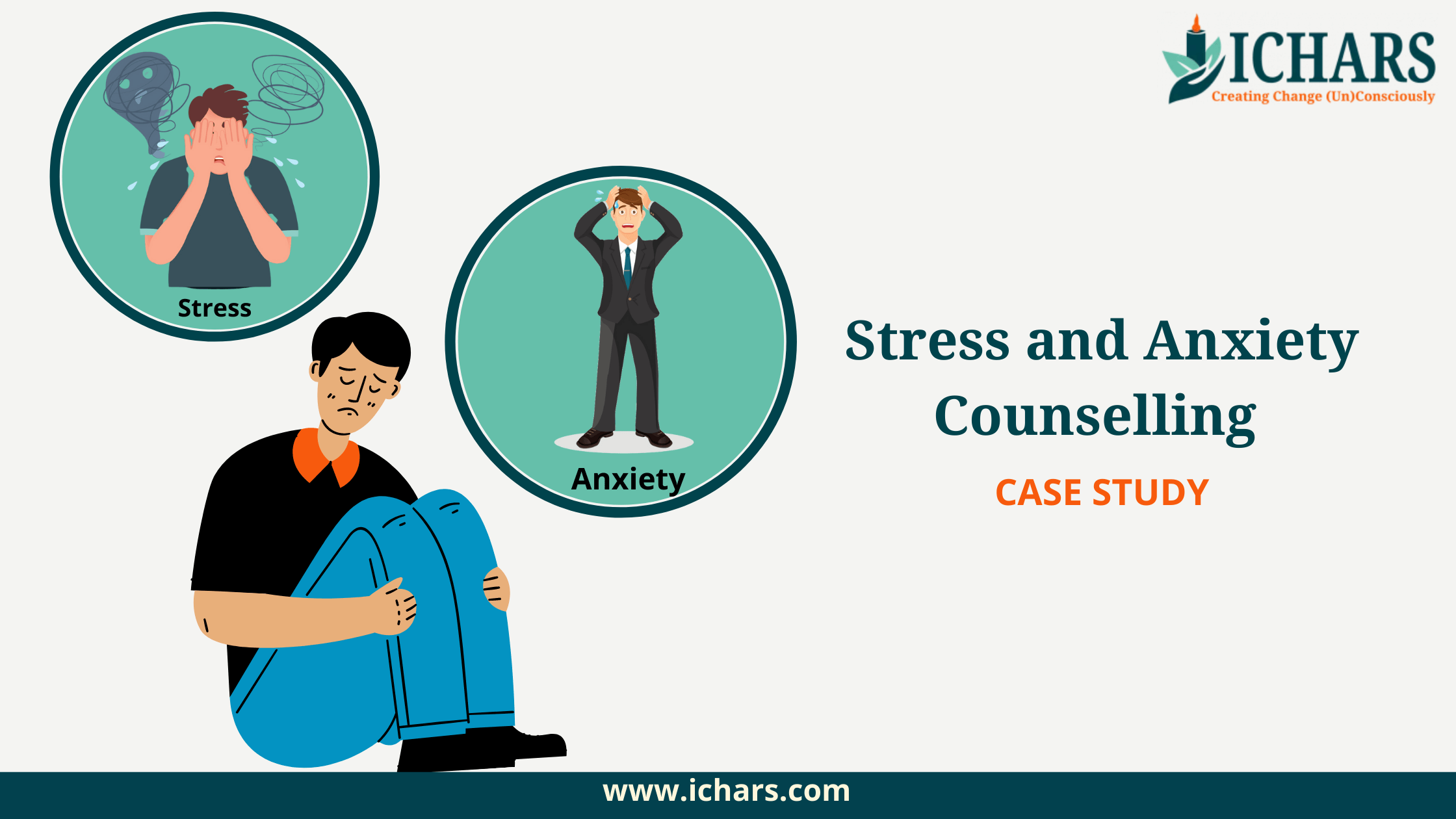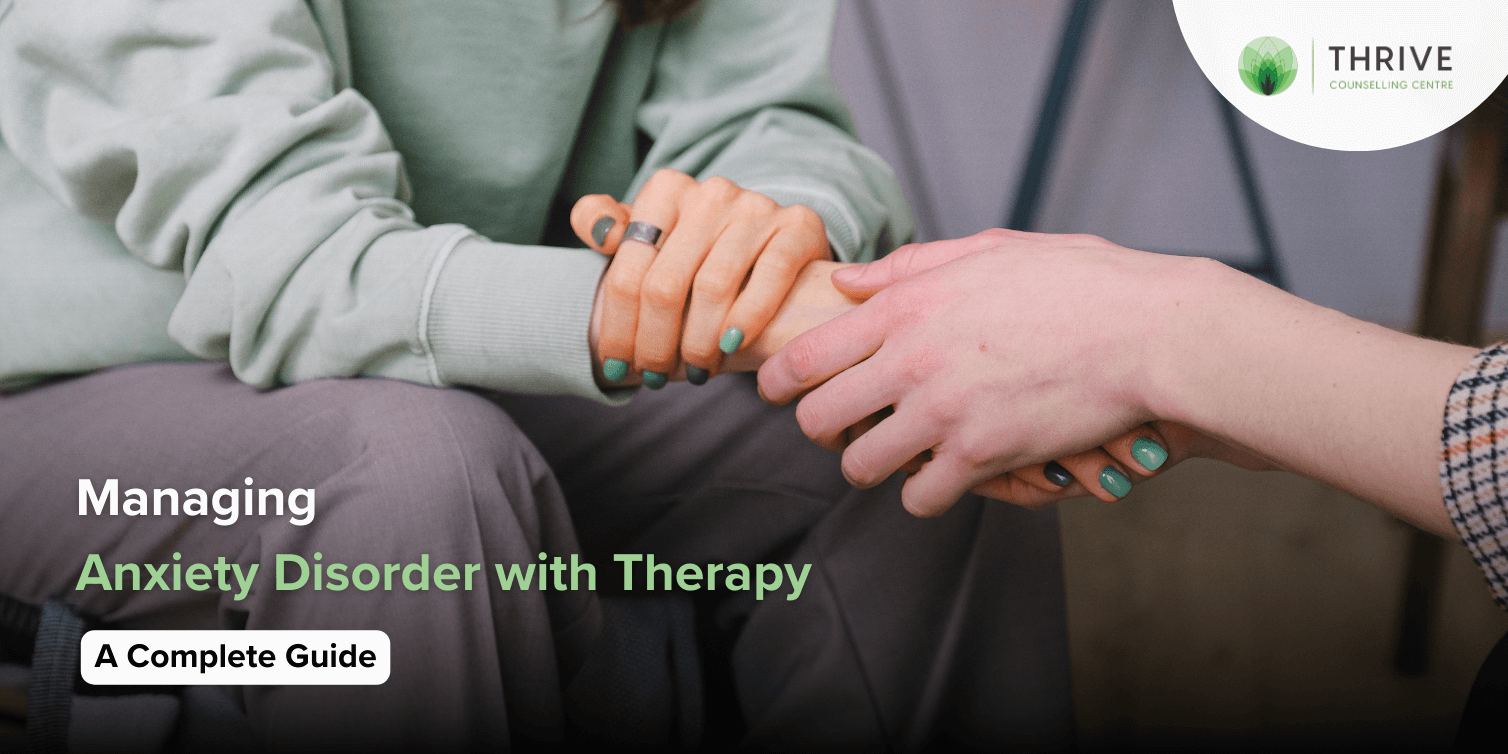Checking Out Different Strategies in Counselling for Stress And Anxiety Disorder for Long-term Modification
When dealing with stress and anxiety problems, it's necessary to check out a selection of counseling techniques. Each approach offers distinct understandings and tools to help you handle your signs and symptoms properly. You could find that integrating methods can yield the best results. Recognizing the subtleties of these approaches is key to promoting long-term change. What happens if the right combination could launch a brand-new degree of psychological well-being for you?
Recognizing Stress And Anxiety Disorders: A Short Introduction
Anxiousness conditions, which impact numerous people worldwide, can considerably impact day-to-day live. You may experience frustrating sensations of anxiety or worry that appear unmanageable. These sensations can cause physical symptoms like a racing heart, sweating, or also lightheadedness. Typical sorts of anxiousness disorders consist of generalized anxiety disorder, panic attack, and social stress and anxiety condition. Each has unique indications, however they all share a propensity to interrupt your routine and relationships.Understanding the source of your stress and anxiety is crucial. It might originate from genes, mind chemistry, or life experiences. Recognizing your triggers can aid you handle your responses much better. It is essential to bear in mind that you're not alone in this battle. Many individuals deal with similar difficulties, and looking for aid is a solid step towards feeling better. By learning more about anxiousness disorders, you're currently on the course to understanding and handling your problem better.
Cognitive-Behavioral Therapy: Challenging Negative Thought Patterns

Recognizing Unfavorable Thought Triggers
When you run into minutes of distress, identifying the specific triggers behind your adverse ideas can be essential in managing anxiety. Beginning by paying focus to situations that provoke sensations of fear or fear. Is it a jampacked space, an upcoming due date, or a conversation with certain individuals? Write these circumstances in a journal. This will assist you identify patterns in your reasoning. Notification physical feelings that accompany your adverse ideas, like an auto racing heart or tightness in your breast. By pinpointing these triggers, you acquire understanding into what's sustaining your anxiety. Comprehending these links is the very first action in challenging those ideas and ultimately gaining back control over your emotional feedbacks.

Replacing Ideas With Positives
Testing unfavorable idea patterns is a vital action in transforming your way of thinking and decreasing anxiousness. You may often locate yourself trapped in cycles of self-doubt or devastating thinking. Rather of letting these ideas determine your feelings, practice changing them with favorable affirmations or realistic options. When you believe, "I can not handle this," shift it to, "I can handle obstacles one action at a time." This easy change can greatly affect your emotional state. Regularly recognizing and countering these unfavorable ideas helps create a healthier internal discussion. Bear in mind, it takes some time and initiative, yet regularly exercising this technique can lead to enduring adjustment, encouraging you to face anxiousness with restored self-confidence and resilience
Building Coping Strategies Together
Replacing unfavorable ideas is just the start of managing stress and anxiety successfully. To develop lasting change, you need to build coping methods that empower you. Cognitive-Behavioral Treatment (CBT) aids you identify and test those purposeless idea patterns. Together, you and your therapist can discover exactly how these ideas impact your feelings and behaviors.Start by establishing useful techniques, like journaling or mindfulness exercises, that allow you to challenge anxiousness head-on. When you encounter your worries progressively, you'll find out to react in different ways.

Mindfulness and Acceptance-Based Approaches: Cultivating Present-Moment Awareness
As you browse the intricacies of stress and anxiety, integrating mindfulness and acceptance-based strategies can substantially boost your capacity to cultivate present-moment recognition. By concentrating on the present moment, you'll locate that you can observe your thoughts and feelings without judgment. This method aids you recognize your stress and anxiety without really feeling bewildered by it.Engaging in mindfulness workouts, such as deep breathing, body scans, or guided meditations, allows you to ground yourself in your present experience. Acceptance-based strategies motivate you to embrace your feelings rather than fight versus them. They lose their power over you.Incorporating these methods into your daily routine can transform just how you react to anxiousness when you approve your sensations. You'll develop strength and find out to browse demanding circumstances with better convenience. Inevitably, growing present-moment recognition lays the structure for lasting change, encouraging you to lead a more meeting life.
Exposure Therapy: Facing Worries Progressively
Exposure therapy assists you confront your concerns in a progressive method, making it much less overwhelming. You'll find out strategies to face anxiety-provoking situations step by step, while likewise building coping techniques to manage your responses. This approach equips you to take control and reduce stress and anxiety in time.
Steady Exposure Strategies
When encountering anxiety, slowly facing your worries can be a powerful way to gain back control. This strategy, called gradual exposure, entails gradually subjecting yourself to the scenarios or items that activate your stress and anxiety. Start with less daunting situations and progressively work your way as much as even more challenging ones. If you're afraid of public talking, you could start by talking in front of a mirror, then progress to sharing ideas with a friend, and at some point attend to a small team. Each step helps desensitize you to the worry, constructing your self-confidence gradually. Keep in mind, it's necessary to pace yourself and commemorate little triumphes as you relocate through this procedure, reinforcing your capability to handle anxiousness efficiently.
Structure Coping Methods
Structure effective coping approaches is essential for managing anxiety, especially as you challenge your anxieties slowly. One powerful technique is direct exposure treatment, where you start by encountering your anxieties in a controlled fashion. Start with less intimidating situations and gradually function your method up to even more difficult scenarios. This progressive exposure assists desensitize you to anxiety activates, making them less overwhelming.Incorporate relaxation techniques, such as deep breathing or mindfulness, to calm your mind throughout direct exposure. Track your progress, commemorating tiny success in the process to enhance your self-confidence. Bear in mind, it's all right to take your time; the objective isn't perfection yet constant enhancement. By building these techniques, you'll equip yourself to navigate stress and anxiety and accept life much more completely.
Psychodynamic Therapy: Discovering Source of Stress And Anxiety
Psychodynamic therapy discovers the subconscious mind, exposing the source of your anxiety - Counseling services for anxiety. By analyzing your ideas, sensations, and previous experiences, this method helps you reveal underlying disputes and unresolved issues that might add to your current anxiousness. You'll function with a therapist to examine childhood experiences, partnerships, and psychological patterns that form your responses today.As you obtain understanding right into these much deeper layers of your psyche, you'll start to identify just how previous events influence your existing behavior. This understanding can cause catharsis, enabling you to refine feelings you may have suppressed.Through the healing relationship, you can additionally identify defense mechanisms that may have created gradually, supplying a more clear course to alter. Eventually, psychodynamic treatment equips you with the tools to resolve your anxiety at its core, promoting enduring change in your psychological well-being
Alternative and integrative Methods: Combining Techniques for Greater Efficacy
Integrating different healing strategies can enhance your trip toward handling stress and anxiety better. By incorporating elements from cognitive-behavioral therapy, mindfulness methods, and holistic approaches, you can develop a personalized technique that addresses your one-of-a-kind demands. For example, you may use cognitive-behavioral methods to test adverse thought patterns while incorporating mindfulness workouts to ground on your own in today moment.Additionally, discovering holistic techniques such as yoga or reflection can advertise relaxation and lower stress and anxiety symptoms. This mix permits you to establish better self-awareness and resilience.Experimenting with these varied approaches can aid you discover what resonates most with you. Bear in mind, it's regarding locating a harmony that functions, as opposed to sticking to a solitary approach. This integrative technique not just provides instant alleviation yet also promotes long-term skills for taking care of anxiousness, encouraging you to recover control over your life.
The Role of Assistance Systems: Building Strength Through Connection
While it may seem that taking care of stress and anxiety is a singular journey, having a solid support group can play a necessary function in your strength. Bordering on your own with understanding good friends, family, or support system produces a secure area where you can freely share your sensations and experiences. You remind on your own that you're not alone in this struggle.These relationships use support and can offer functional coping methods that have functioned for others when you attach with others. It's also an opportunity to acquire point of view; pals can assist you see situations differently, reducing feelings of isolation.Moreover, emotional support promotes a sense of belonging, which can considerably reduce anxiousness symptoms. By leaning on your support group, you can build resilience and tackle difficulties a lot more properly. Bear in mind, connecting for aid suggests stamina, and it can make all the distinction in your trip towards handling anxiety.
Regularly Asked Inquiries
What Are the Typical Signs of Stress And Anxiety Disorders?
You could experience uneasyness, fatigue, trouble focusing, impatience, muscular tissue tension, and rest disturbances. Physical signs can include quick heart beat, sweating, and shivering. Acknowledging these signs early can help you seek appropriate support and treatment.

The Length Of Time Does Treatment Generally Last for Anxiety Conditions?
Therapy for stress and anxiety conditions generally lasts anywhere from a few weeks to a number of months. It really depends upon your specific requirements, development, and the strategies your specialist makes use of to help you manage your anxiety effectively.
Can Medication Be Used Alongside Therapy for Anxiousness?
Yes, medication can most definitely be made use of together with treatment for anxiety. Incorporating both techniques frequently improves treatment efficiency, aiding you manage signs while discovering underlying issues via therapy. Constantly consult your health care supplier for tailored guidance.
Are There Self-Help Methods for Managing Stress And Anxiety?
Yes, there are several self-help strategies for taking care of anxiousness. You can exercise mindfulness, participate in routine exercise, preserve a balanced diet plan, establish a regular, and utilize deep breathing methods to help in reducing anxiousness symptoms properly.
Just how Do I Know if I Need Specialist Aid for Stress And Anxiety?
You need to think about seeking specialist help for anxiety if it interrupts life, creates significant distress, or if self-help strategies aren't functioning. Trust your impulses; connecting can result in much better coping skills and support. Typical types of stress and anxiety conditions include generalised anxiety disorder, panic disorder, get more info and social anxiousness disorder. When you encounter moments of distress, identifying the certain triggers behind your unfavorable thoughts can be necessary in managing anxiety. Replacing unfavorable thoughts is only the beginning of managing stress and anxiety successfully. By examining your thoughts, sensations, and past experiences, this method aids you discover underlying conflicts and unsettled issues that might add to your existing anxiety. It's likewise an opportunity to acquire point of view; good friends can assist you see scenarios differently, decreasing sensations of isolation (Counseling services for anxiety).Moreover, emotional assistance cultivates a feeling of belonging, which can greatly alleviate anxiousness symptoms